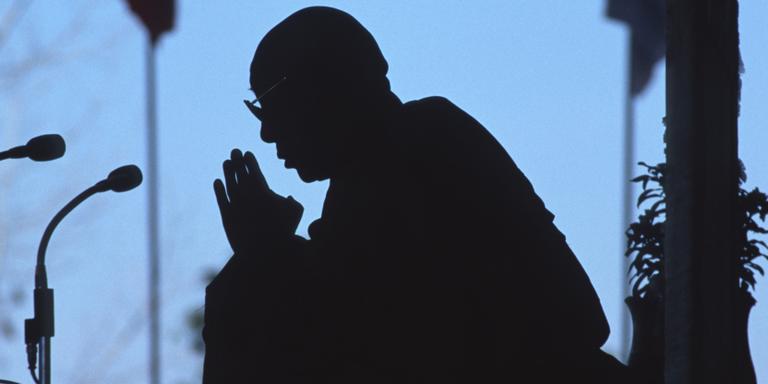


Will the 14th Dalai Lama be the last?
Series'The Dalai Lama's extraordinary journey' (6/6). While it is not yet known who will succeed Tenzin Gyatso, or even if he will have a successor, His Holiness has assured that he will leave instructions when he reaches age 90, in 2025. But, according to Beijing, it is up to China to appoint the next Tibetan spiritual leader.
With his youthful face, Sonam Tsering looks like an eternal student behind his round, metal-rimmed glasses. But it's been a while since this Tibetan refugee left university. At the age of 32, he is General Secretary of the Tibetan Youth Congress (TYC), the only diaspora organization to have been critical of some of the Dalai Lama's decisions. In particular, the TYC believes that it is necessary to continue to demand the independence of Tibet, contrary to the positions taken by the Tibetan leader in the late 1980s. But political differences be damned: for this young man living in Dharamsala, the Indian capital of the government-in-exile, the prospect of the spiritual leader's passing is a source of anxiety. The "Precious Jewel," as he is known to his followers, turned 88 on July 6, and although he has predicted that he will live to be 113, the question of his succession is shrouded in uncertainty.
Yet he's doing nothing to dispel his compatriots' concerns. Has he not hinted on several occasions that he may well be the last in his line, i.e. cease to reincarnate as Dalai Lama? This would signal the end of a lineage dating back to the 14th century. However, "I'm sure His Holiness will be reincarnated," Tsering wants to believe, elbows resting on a long table in the meeting room whose windows overlook the foothills of the Himalayas.
But are the Tibetans ready to face the inevitable? "His Holiness will surely leave us instructions," said the TYC General Secretary. For the time being, however, it has to be admitted that the instructions are taking a long time to be revealed. And with good reason − as the Dalai Lama is no longer in Tibet, but in India, his succession will be organized in that country, where the traditions associated with this very special ritual will have to be reinterpreted, or even reinvented, far from the environment in which they were born. Above all, the political situation has nothing to do with that which prevailed in 1933, on the death of his predecessor, Thupten Gyatso. The Chinese, colonizers of the Land of Snows since 1959, have already made it known – how ironic, for a system advocating dialectical materialism – that the succession of the "Buddha of Compassion" is a matter of primary concern to them.
Contradictory statements
For his part, the spiritual leader of the Vajrayana (Tibetan Buddhism) has done little to clarify a situation on which the durability of an institution born with Gendun Drub (1391-1474), the first Dalai Lama, depends. Tenzin Gyatso, the 14th, has even gone to great lengths in recent years to muddy the waters, multiplying more or less contradictory statements and leaving the game wide open. A little too much, perhaps.
You have 84.66% of this article left to read. The rest is for subscribers only.
